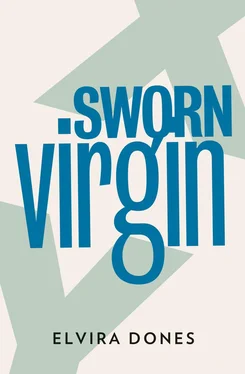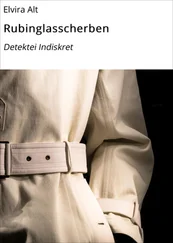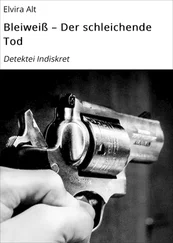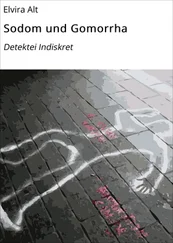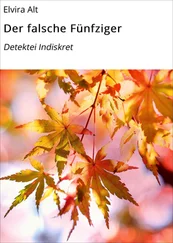The parents, sitting facing one another, each look at the opposite wall. The young girl looks downcast.
‘It’s nothing serious, right, Mom?’
‘Not serious, no.’
‘Nobody’s ill or anything?’
‘No.’
‘Well, nothing else is important,’ Jonida continues, relieved. ‘So, Uncle Mark, now that you’ve put this idea in my head, how am I supposed to hold on until tomorrow?’
‘There are some things you can’t say just like that. Be a little patient.’
‘Ok. I’ll just go get my school bag ready, then I won’t think about it anymore.’
She goes out of the room. Shtjefën is worried and stares at Hana.
‘Are you sure you know what you’re doing, brother?’
Hana smiles, with a hint of dismay.
‘Shtjefën, you’re going to have to get used to it sooner or later; you’re going to have to call me by my girl’s name.’
‘It’s too soon,’ he says. ‘Look, sorry, but all my life I’ve seen you as a man.’
‘I know. Let’s drink on it, then I’m going to take a walk.’
Shtjefën offers to go with her and Hana doesn’t say no. Jonida comes in and out of the kitchen, silently watching them from the corner of her eye. Whining fire sirens and rumbling traffic noises come through the window.
Finally, Jonida wishes them all goodnight and goes to bed. Lila goes with her to her room.
There’s nothing we can talk about, nothing that can be put into words easily, Hana thinks later on as she and Shtjefën walk, their cigarettes flashing like fireflies. The night is warm, with a light breeze. There are still joggers out in the park. Cars pass slowly. Shtjefën explains that on small roads like these the speed limit is twenty-five miles per hour, and that the Americans are really strict about these things because this area is a middle-class residential district where people are trying to improve themselves, and so … Shtjefën leaves the sentence hanging in the air. Hana lights herself another cigarette, unsure what to do with the stub of the first. In the afternoon, when they had gone on the same walk with Jonida, her niece had told her never to throw them on the ground, because if you do you’ll get a fine.
‘Here, give it to me,’ Shtjefën says. He wraps both stubs up in a paper hankie, which he then stuffs in his pocket.
He rests his arm on her shoulder and then hastily withdraws.
‘I’m sorry.’
‘What about?’
‘It’s hard.’
Hana waits. Shtjefën takes his time before saying it’s weird, this knot of words that he doesn’t know how to get out. He says that in the last nine years the mountains seemed so far away that they didn’t really exist for him anymore. And now … Now finish the sentence, Hana begs in silence.
‘Now you come here to America and I don’t know how to explain that basically all this time I’ve been thinking of you as Mark in the village and at the same time as Lila’s favorite cousin. With all the raki you’ve drunk in your time, Hana. All that raki.’
Hana walks away and Shtjefën does not try to catch up. The distance between them increases.
‘With all that raki, Hana Doda, here you are.’
Hana stops and turns round angrily.
‘Are you drunk, Shtjefën?’
‘No.’
‘Well say what you mean, then.’
‘This is the way I speak.’
‘That’s not true. Tell me, are you scared? Did you say I could come just because Lila wanted me to? Do I embarrass you? Tell me the truth.’
She listens to her hostile, aggressive words and thinks that maybe she’s the one who is drunk around here.
‘Does my presence here make you feel strange?’ she asks, sweetly.
Shtjefën’s heavy body seems to sway.
‘With all the raki you’ve drunk and all the tobacco you’ve smoked, your voice still has something feminine about it. Jonida noticed. And anyway, no, I’m not scared of anything, not for me and not for us. But for you this is a hard place. America doesn’t give you anything for free.’
Hana laughs at this.
‘So you really have forgotten the mountains, Shtjefën. You’ve forgotten how hard it is.’
Shtjefën thinks about this.
‘You’re going to tell Jonida everything tomorrow?’
‘Don’t worry, I’ll do it properly.’
‘She’s growing up so fast that it’s hard to keep up. Lila and I work like crazy and we can barely make ends meet. Sometimes I get back from work and Jonida’s already in bed, and when we’re having breakfast together at the weekend she already has new words in her head. In five years she might be in college, and I’m thinking, God, how am I going to …?’
Hana is getting used to Shtjefën’s unfinished sentences.
Back then she didn’t know him well. She remembered that a long time ago he was the best dancer in those cursed mountains. Once he had even been sent to the National Folk-dancing Festival at Gjirokastër. His sword dance had won the men’s top prize.
Pictures of Shtjefën and the other guy dancing with him used to hang on the ‘Socialist Emulation’ notice board in the district hall, right in the center of the village. Their arms bearing the glinting swords were thrust up high, their felt skullcaps pushed back, their red and black vests open like wild roses. Hana remembers that it had not been long after the dance that she took the decision to become a man. At Shtjefën’s dance she hadn’t yet known.
Lila and Shtjefën had just got married.
When she had gone back to Tirana, where she had been in college, the village of Rrnajë seemed so remote to Hana it made her head spin. She remembered wondering what she had been doing in that dump. She remembered calling to mind memories of cities and abstract poems written by foreigners in faraway lands. She remembered feeling like a stone at the bottom of a dark well. Her uncle was sick and bedridden; her aunt had just died. Hana had only the animals for company, and the poems she used to write now and then.
‘Shall we go back?’ Shtjefën asks Hana. ‘I’m beat.’
Much later, when the Dibras are all asleep, Hana steps out onto the tiny kitchen balcony. She leaves the door open for a moment so the room where she’ll be sleeping gets some air. Then she shuts the door, lights a cigarette and smokes it as calmly as she can, leaning on the balcony, trying to empty her mind. When she is able to do this, it is a particularly pleasurable exercise. She leaves her thoughts out and lets the silence in. It is a great sensation; she is full and empty at the same time. Her head lets air in, and the air acts as a kind of fan that refreshes the inside of her mind. She becomes aware of the pulse of her existence. It beats in her weak stomach, pauses for a while in her kidneys, which have never given her trouble. It is a simple, quiet journey. She feels like a rather undemanding tourist, lacking all curiosity. There is nothing she doesn’t already know in there; nothing new to discover.
She runs her hand through her short, thick hair. Her shower that morning has softened it. Lila had urged her to use the conditioner after the shampoo and she had obeyed. She had even quipped something stupid like, ‘You’re already on a mission to civilize your cousin,’ which had annoyed Lila. ‘Don’t start that crazy stuff,’ Lila had answered. Hana had laughed.
Here you are. That’s how they say it. Here you are. Her first American solitude. Her first night in this suburb, so like the films.
It feels like centuries since she left Rrnajë. She feels the shoulders and then the collar of her shirt. Lila’s washer and dryer have already washed the smell of the mountains away.
She feels as though she is not herself; her name isn’t Hana, her name isn’t Mark. This feels like someone else’s journey. She is watching the performance of a surreal dream.
Читать дальше
